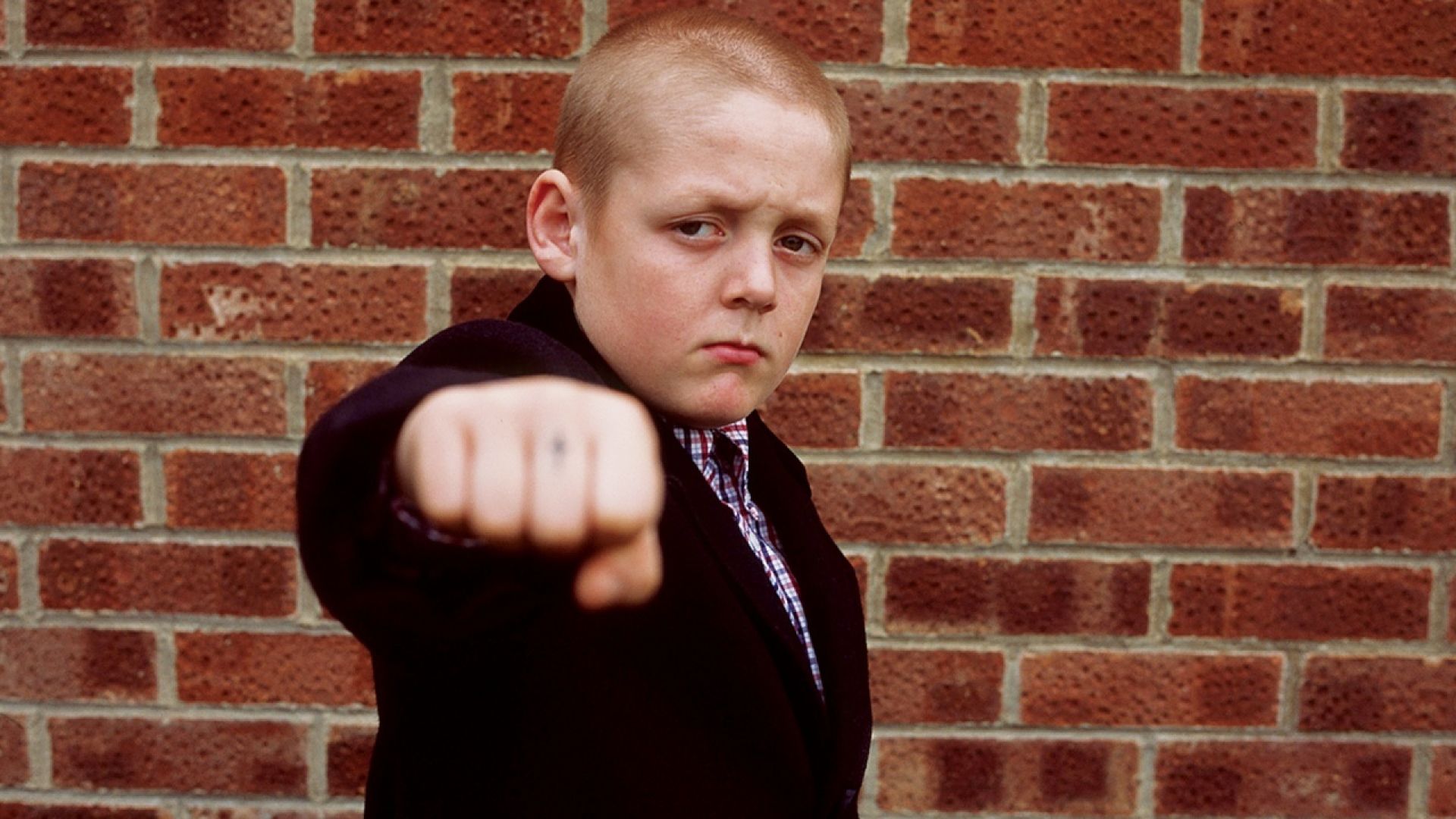
Growing up is hard to do. And for some, it’s even harder. Many things can define our childhood and adolescence, and determine who we ultimately become as adults. These may be the friends we spend time with, the circumstances in which we are raised or the experiences that we undertake. Or it could be something else entirely. What can be said for definite is that, without exception, everyone experiences some difficulties or pain as they grow up.
The pain of growing up is often captured in film and is a popular theme of many coming of age films, as well as other genres. This list looks at some films that perfectly encapsulate an aspects or aspects of the pains of growing up.
1. Fish Tank (2009)
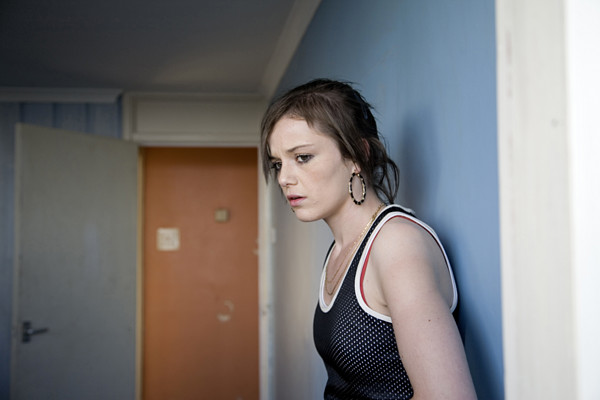
Fifteen-year-old Mia lives with her single mother Joanne and younger sister Tyler. Her mother ignores her and parties hard, and her sister fights with her. Mia has no friends, and spends her time practising her hip-hop dancing in an abandoned flat in the council estate where she lives. When Mia’s mother brings home a new boyfriend named Conor, he encourages Mia to pursue her love of dance and gradually the boundaries of their relationship become blurred as Mia develops feelings for Conor.
The circumstances in which you grow up can certainly shape the way you think, behave, and in some cases, have an impact on the path you choose to follow. Mia lives in an impoverished neighbourhood where it is not unusual to hear shouting as you walk down the road. She has an uncaring mother who constantly swears at her and leaves her to sort herself out, she has no friends and she doesn’t go to school. All these things mean that Mia not only has the usual teenage problems to deal with, but she is a victim of her environment and careless upbringing.
Fish Tank is shot in 1.33:1 aspect ratio, so that the screen is almost square. This may seem like an unusual choice, but this makes the gritty realism of Fish Tank feel more personal and intimate. The camera never leaves Mia’s side, and so the audience is always completely caught up in Mia’s thoughts and feelings. Fish Tank is also unusual in that it doesn’t gloss over anything – the language is incredibly coarse, within the first five minutes the swear word count is sky high. There are no rosy endings or suggestions that everything will turn out alright in the end.
Director Andrea Arnold found lead star Kate Jarvis (Mia) after seeing her arguing on the street with her boyfriend. In this way, it was almost as if Jarvis was destined for this part, and it shows in her honest and open performance. Michael Fassbender is also noteworthy in his portrayal of Conor. You are never entirely sure of what your feelings should be towards his character. In Fish Tank, we get a look at the bleak side of the pains of growing up, but it is shot and performed so well that it is absurdly engaging – this film is so raw and real that is almost feels like voyeurism.
2. The Squid and the Whale (2005)
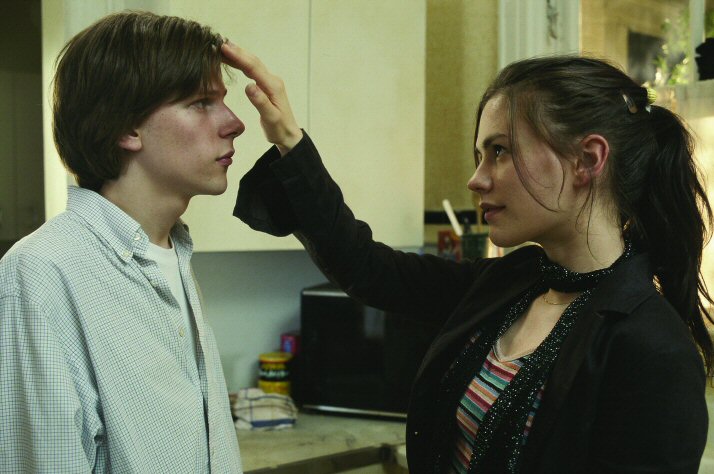
This semi-autobiographical film follows two boys living in Brooklyn who are dealing with their parents’ divorce. Whilst mother Joan’s writing career takes off, surpassing that of her husband Bernard’s career as a professor, each boy deals with the divorce in their own way. While sixteen-year-old Walt takes his father’s side, his twelve-year-old brother Frank finds it harder to choose.
Growing up and living with two writer parents who use words as weapons, means that it is inevitable that sons Walt and Frank will eventually become casualties of the war. Both of the boys deal with the divorce in their own way, just as they deal with the challenges of growing up in their own way.
For Walt, this means emulating his father and punishing his mother. For Frank, this means exploring his existing relationships and his own self-discovery of his body. The Squid and the Whale is not only a film about the effect of divorce on growing up, but it is also about the effect and influence of our parents and the ways they shape us for adulthood.
This quiet and observational film uses its sharp dialogue, and great understated performances by all, to be utterly engaging and relatable. Its short running time means that it never gets too bogged down in any one situation, rather there are a series of situations that all add up to the painful comedy of growing up with parents that may be even more messed up than their adolescent offspring.
One of the best things about The Squid and the Whale is the way it treats its characters, which in turn influences the audience’s perception and acceptance of the characters. These characters are deeply flawed, often acting in ways that make them wholly unlikeable. Yet you are never disgusted or judgemental of them.
Everyone has acted in some way that they might not be particularly proud of, especially as they were growing up. So, in these characters, the audience is able to find some sympathy and common ground. Overall, The Squid and the Whale accurately, and sometimes in an almost painfully relatable way, portrays the pain and self-discovery of growing up.
3. Moonlight (2016)
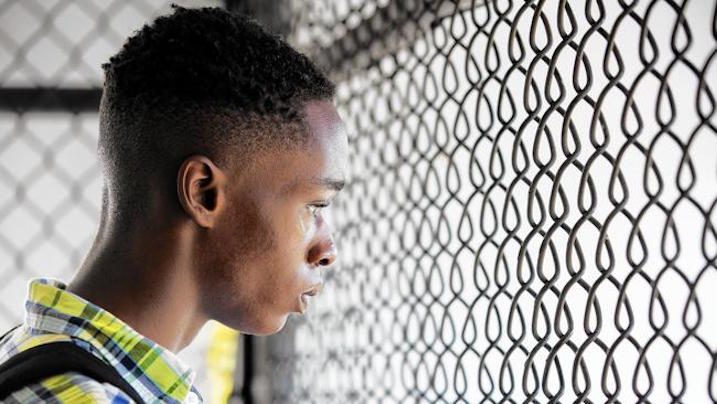
Academy award winner of Best Picture 2017, Moonlight follows Chiron, a young man who is growing up in a rough neighbourhood in Miami. The story is told over three chapters of his life – his childhood, adolescence and burgeoning adulthood. Moonlight explores the difficulties that Chiron faces with his identity and sexuality, and with the physical and emotional abuse he receives. Along the way, Chiron meets different people that all in their own individual way, make a difference to his life.
One of the paramount struggles of growing up is trying to find your own identity and where you fit in. This conflict of selfhood discovery is something that everyone without a doubt can relate to. Moonlight is a film which highlights this struggle in an incredibly raw and honest way. But Moonlight is not only about struggle, it is also about acceptance, friendship and the complexities of growing up.
The three separate chapters mean that the audience has at least one chapter in that they can find something to relate to, if not in all three chapters. This also means that we are given a highly personal look into the journey of one young man, not only at one age in his life but in several. You don’t ever really stop growing up, you just get older. And with getting older, you encounter more difficulties that question who you are and who you want to be, which is one of the cruxes of growing up.
Within the complex journey that Moonlight takes us on is the poetic quality of the film itself. It is beautifully crafted and intelligently formed, and it asks us to ask ourselves questions that might make us uncomfortable. What is tolerance? Who are we? What do we stand for? These questions are often asked of us, and how we answer can define the struggles that we ultimately face as we grow up.
A heart-breaking and poignant moment comes early in the film when a young Chiron asks, “Am I a faggot?” This line alone sums up the pain of growing up for Chiron. In all of our lives we can remember moments which made the pain of growing up so painfully acute that it feels like that it is all that defines you. In time you learn that this is not the truth of life. The pain of life’s lessons, realisations and discovering your identity are all subjects which are explored in Moonlight and which make it a wonderfully understated masterpiece on the pain of growing up.
4. Stand By Me (1986)
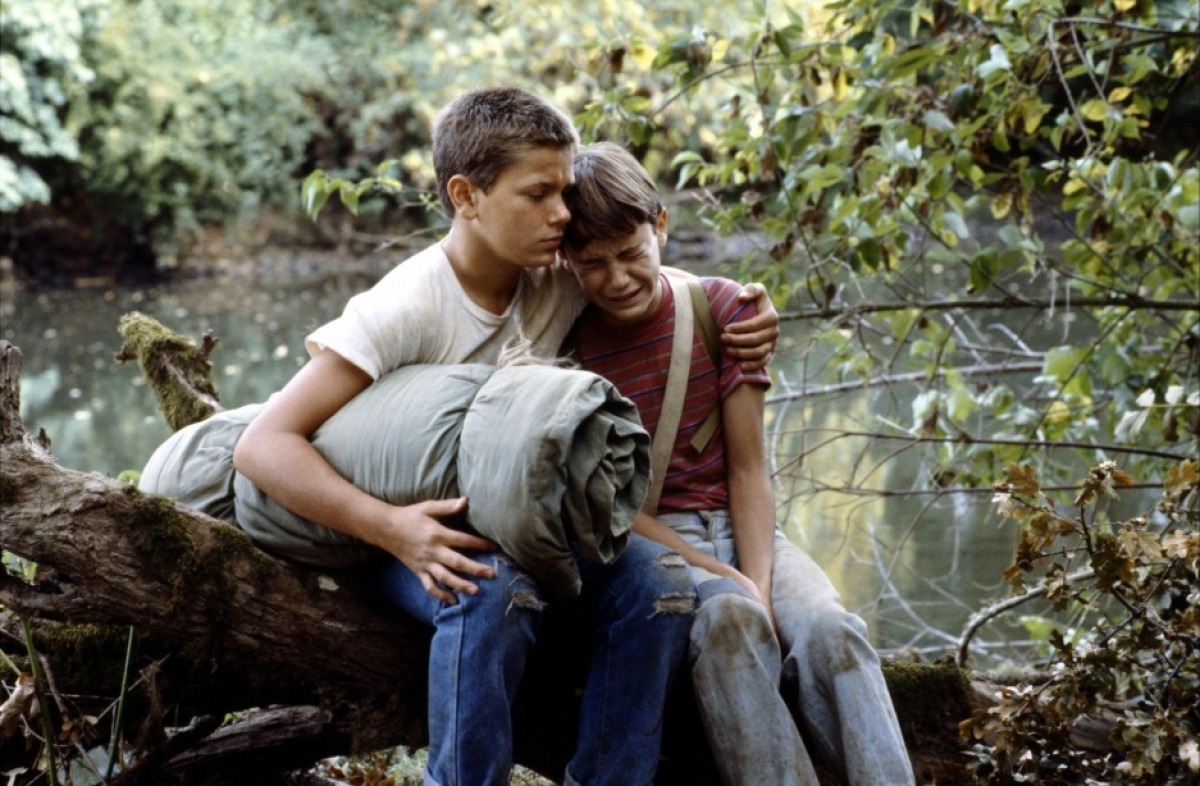
After the death of a friend, a writer recounts a childhood journey from many years previously. Four friends, Gordie, Chris, Teddy and Vern, from a small town in Oregon decide to undertake a journey to find the body of a missing child. The four boys all have vastly different personalities and home lives, but as they spend more time together, the adventure evolves into a defining moment in all of their lives.
The friendships that we cultivate in childhood can often define the friendships that we have in adulthood, and in some cases, can be friendships that we have throughout our lives. Not only that, but friendship is an important keystone of growing up. Stand By Me celebrates those life defining friendships, and the moments that they create. In many ways, Stand By Me is a timeless film.
Whether you watch it for the first time as a child, as an adult, or return to it many years later, it evokes perfectly the pain and pleasure of growing up. From the crazy escapades that you get up to with your friends to the agony of bereavement, Stand By Me visits all these moments and more in a film which epitomises growing up.
Using a first-person narrator, who is later revealed to be Gordie, means that Stand By Me has a uniquely personal quality to it. The audience knows the intricacies of Gordie’s journey the most out of the boys, but this doesn’t mean that the audience has to relate most to him. The nature of the film means that you can find something relatable in each or all of the characters. The realistic and identifiable personalities and circumstances of the boys may even be something that we have experienced ourselves.
In a film where everything screams nostalgia, from the characters, to the setting of a small town in Oregon, Stand By Me is a classic film about growing up and the friends that you grow up with. Whether you keep those friendships or drift apart, this line from Gordie sums it up perfectly, “I never had any friends later on like the ones I had when I was twelve. Jesus, does anyone?
5. 12 and Holding (2005)
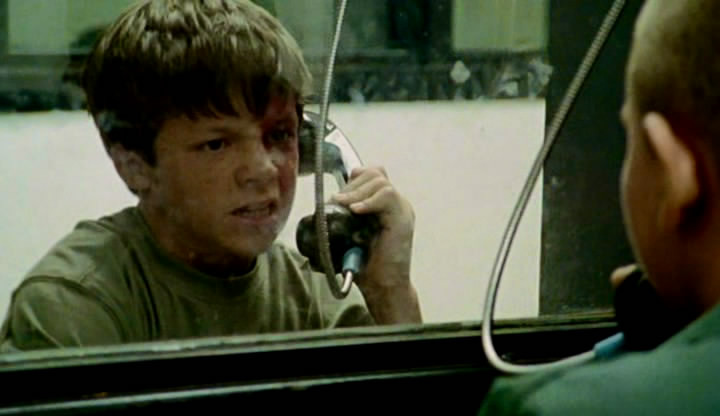
Identical twin brothers Rudy and Jacob couldn’t be more different. Rudy is outspoken and outgoing, whilst Jacob is quiet and cautious. They spend most of their time with their two friends, Leonard who struggles with his weight and Malee who has a difficult relationship with her single mother. After getting into a fight with two local bullies, Rudy becomes the victim of a revenge prank gone horribly wrong. After his death, Jacob, Leonard and Malee must face the harsh realities of grief, hormones and their dysfunctional families.
Growing up and spending time with a group of close friends can often be romanticised in films about adolescents. That is certainly not the case for 12 and Holding. The treehouse in the woods that they play in, instead of being a place that represents fun and friendship, becomes the scene of Rudy’s death. This accurately sums up 12 and Holding’s tone.
The settings that could represent the pleasures in growing up instead represent the pains. And in 12 and Holding, the pains are intense and often even more intensified by the children’s parents. Their parents mean well, but are so often thoughtless and useless in their parenting. For example, Leonard’s parents who try to discourage him from eating healthily telling him that “it’s not healthy” to eat a lot of apples.
Not only are the children dealing with parents who are trying but failing to reach out successfully to their kids, they are also dealing with a myriad of their own problems. And in each child’s problem is a representation of the universal issues that we face as we grow up. Malee develops a strong crush on an older man, and must deal with her developing feelings of lust and love.
Leonard is dealing with body confidence issues and losing weight. And Jacob must deal with being teased about the large birthmark on his face, not to mention the death of his twin brother and the guilt he carries over the death. First love, body issues, bullying and death are all things that we face as we grow up. In other films, these subjects can become the scenes of triumph and joy. Not so in 12 and Holding where these subjects become scenes of tragedy, regret and shock.
12 and Holding is a low budget film, and it often watches that way. However, that never detracts from this study on pre-teen angst that is sure to evoke a reaction in its audience. The three main character’s stories have differing levels of success regarding the overall plot and narrative. But 12 and Holding doesn’t shy away from the difficult and stupid decisions that you make when you are growing up. And a shocking conclusion to one of the stories will give you something to talk about long after the credits have stopped rolling.